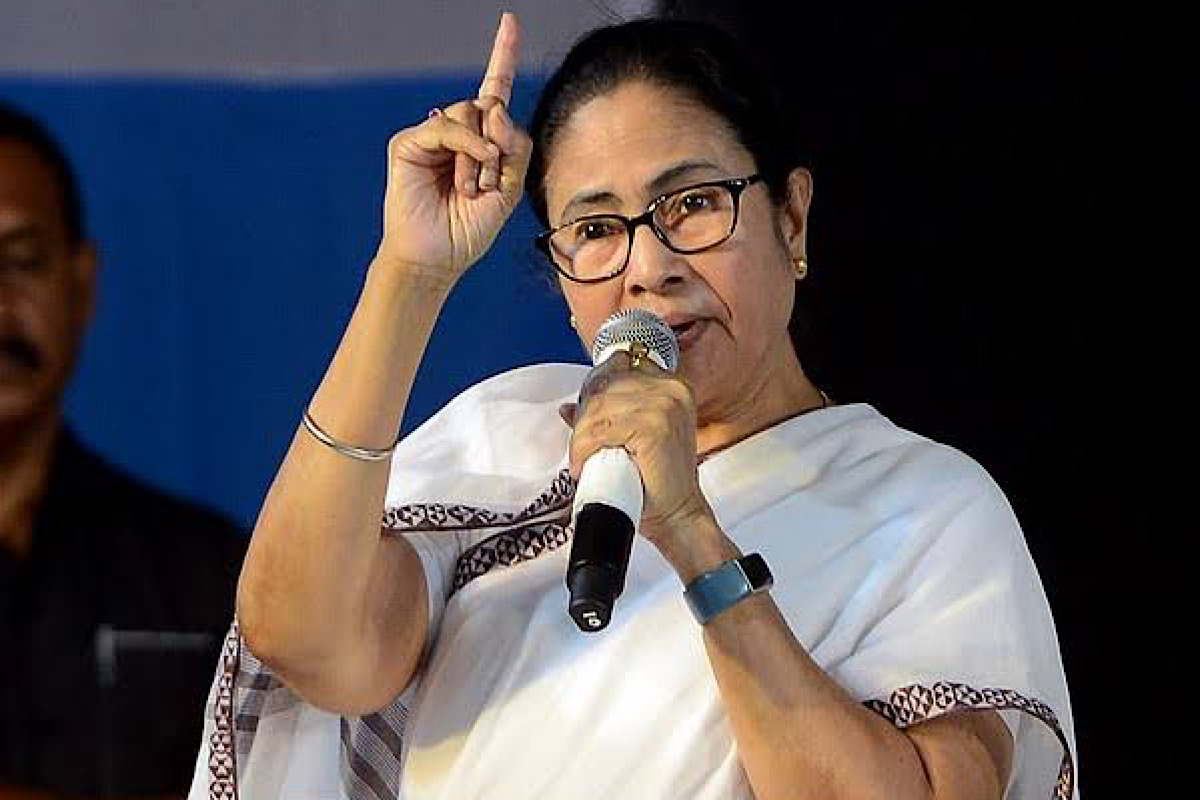Uncharted Warming
The earth has just witnessed its hottest January on record, defying expectations and leaving climate scientists scrambling for answers.
India, which is the third largest producer of greenhouse gases, has pledged to participate in the global endeavour of achieving “Net Zero” by the year 2070 and union finance minister Nirmala Sitharaman has indeed earmarked a share of the national expenditure for this cause.

West Bengal CM Mamata Banerjee (Photo:ANI)
I was wondering what Budget 2024-2025 would allocate to “Environment”. The political class does not devote too much time fretting over this matter. And they spend even less money on the cause of battling climate change despite the assertion by the government that it is a key concern. Compare the allocation during the interim budget in February this year of Rs 2,70,435 to Road Transport and Highways with the paltry sum of Rs 3,079 crore which the ministry of environment, forests and climate change received in Fiscal 2023-2024 though it was a 24 percent increase over the 2022-2024 figure.
However India, which is the third largest producer of greenhouse gases, has pledged to participate in the global endeavour of achieving “Net Zero” by the year 2070 and union finance minister Nirmala Sitharaman has indeed earmarked a share of the national expenditure for this cause. The amount allocated to the ministry of new and renewable energy for spending in the Central Sector Schemes in 2024-2025 is Rs 12,850 crore. It is heartening to note that this is a substantial increase from the figure of Rs 4,403 crore in 2018-2019. However there are quite often several slips between the cup and the lip and only time will tell how the budgetary allocation will benefit the cause of combating global warming.
Advertisement
Yet it is heartwarming when we hear politicians, especially those who have the power to change policy voice concerns about the environment and express a desire to do something to protect it.
Advertisement
During an interview in the run-up to Assembly elections of 2011, I had asked Mamata Banerjee if we would witness greener Bengal if she came to power. “Yes, that is very important,” she had said. “Trees would be planted throughout Bengal.” This was reassuring indeed. We were heartened by Mamata’s refusal to allow the villages of Bengal’s Nandigram and Singur to be turned into petrochemical hubs and factories. We were relieved that the lush green hamlets dotted with clear blue ponds would not be wiped out with tin and concrete.
During this time, Didi, as Mamata is affectionately called, was supported by renowned environmental activist, Medha Patkar. This friendship between Mamata and Medha grew and strengthened over the past decade which saw Mamata return to power with a thumping majority, three times in a row.
“For Didi, protection of the environment is a priority,” Dola Sen, Mamata’s close aide and her party, Trinamul’s, Rajya Sabha member said. Dola, who is a well-known trade union leader, is herself a self-confessed nature-lover.
Budget allocations apart, combating climate change, is an individual responsibility and it helps when one loves nature.
Advertisement